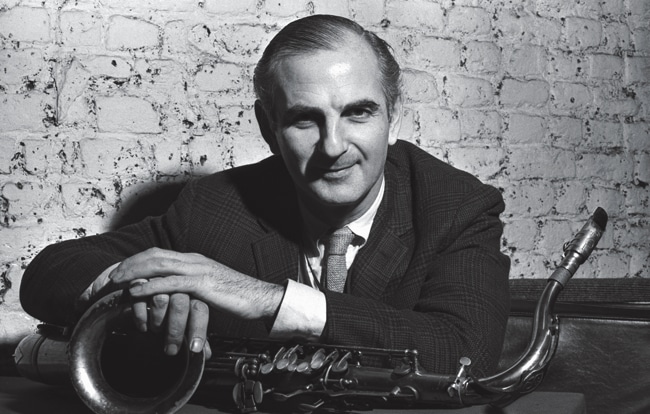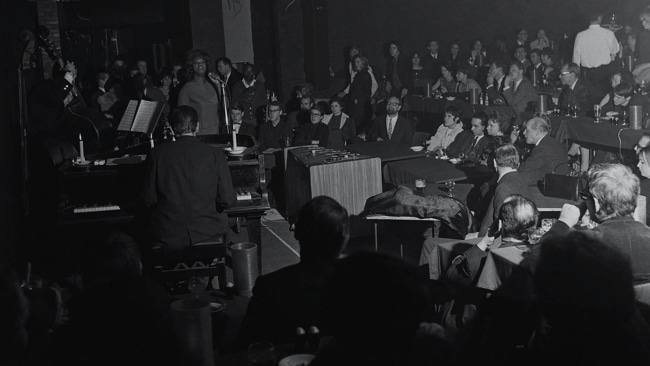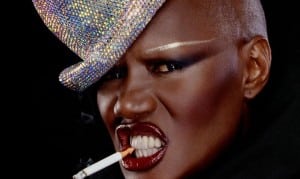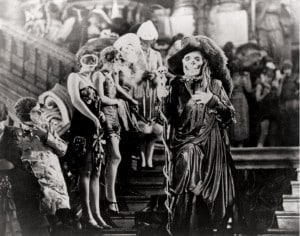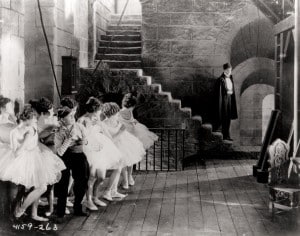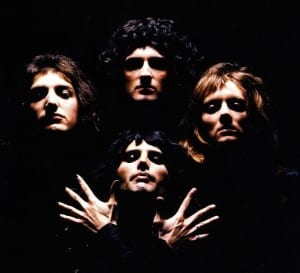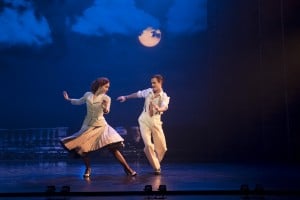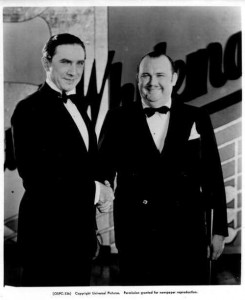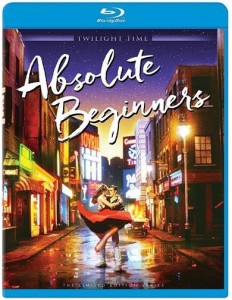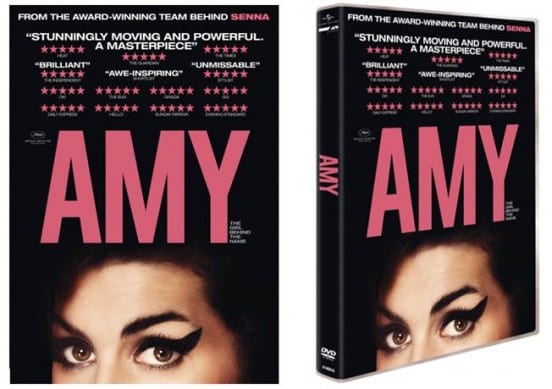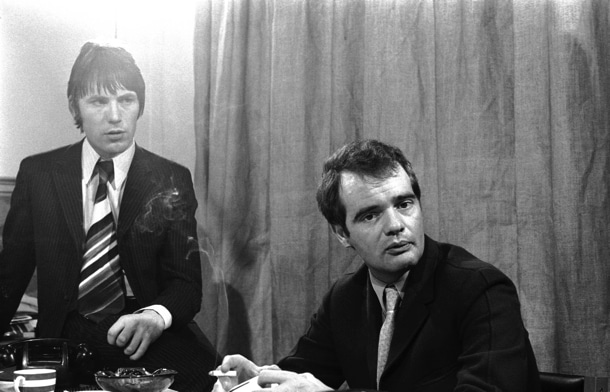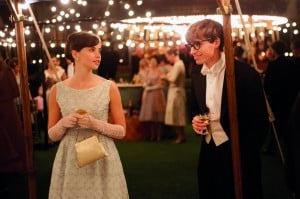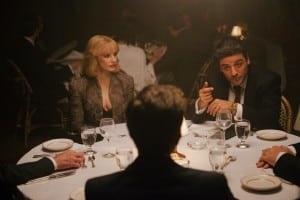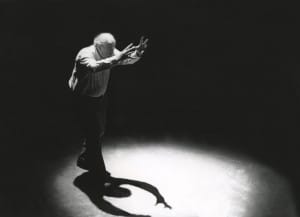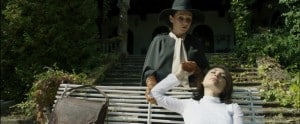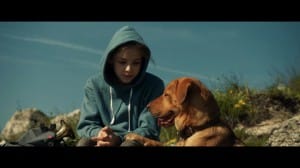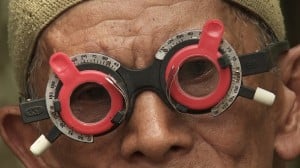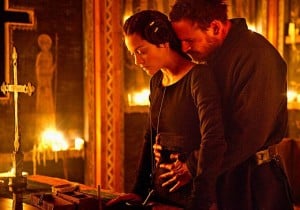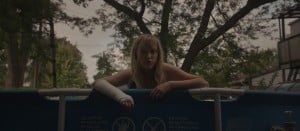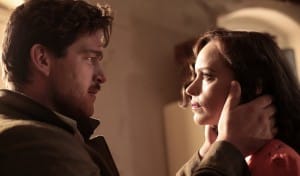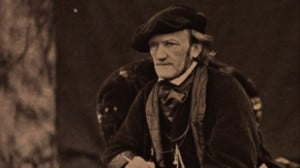SUNDANCE is the first major film festival of the year; a true indie festival coming to you from snowy Utah courtesy of its founder Robert Redford. Setting the benchmark for independent titles in 2015, SUNDANCE focuses on excellence in screenplays and innovativeness in cinematography: each filmmaker is put their paces before their film can be considered in competition. Unlike the Academy Awards, SUNDANCE is purely about talent. We have highlighted the buzzworthy titles in RED and winners – watch out for them!
BEST FILMS
Grand Jury Prize: Dramatic – Me & Earl & the Dying Girl by Alfonso Gomez-Rejon
Grand Jury Prize: Documentary – The Wolfpack by Crystal Moselle
World Cinema Jury Prize: Dramatic – Slow West by John Maclean
World Cinema Jury Prize: Documentary – The Russian Woodpecker by Chad Gracia
Special Jury Prize for Breakout First Feature: Documentary – Lyric R. Cabral and David Felix Sutcliffe for (T)error
BEST DIRECTORS
Directing Award: Dramatic – Robert Eggers for The Witch
Directing Award: Documentary – Matthew Heineman for Cartel Land
World Cinema Directing Award: Dramatic – Alanté Kavaïté for The Summer of Sangailé
World Cinema Directing Award: Documentary – Kim Longinotto for Dreamcatcher
BEST SCRIPTS, CINEMATOGRAPHY and ACTING
Best Script: Waldo Salt Screenwriting Award – Tim Talbott for The Stanford Prison Experiment
Cinematography Award: Documentary – Matthew Heineman and Matt Porwoll for Cartel Land
Cinematography Award: Drama – Partisan
World Cinema Special Jury Prize for Acting: Dramatic – Regina Casé and Camila Márdila for The Second Mother
World Cinema Special Jury Prize for Acting: Dramatic – Jack Reynor for Glassland
AUDIENCE AWARDS
World Cinema Audience Award: Dramatic – Umrika by Prashant Nair
World Cinema Audience Award: Documentary – Dark Horse by Louise Osmond
Audience Award: Documentary – Meru by Jimmy Chin and Elizabeth Chai Vasarhelyi
Audience Award: Dramatic – Me & Earl & the Dying Girl by Alfonso Gomez-Rejon
Best of NEXT Audience Award – James White by Josh Mond
U .S. D R A M A T I C C O M P E T I T I O N
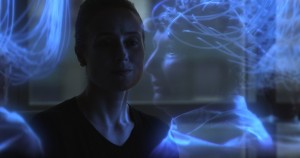 ADVANTAGEOUS / U.S.A. (Director: Jennifer Phang, Screenwriters: Jacqueline Kim, Jennifer Phang) — In a near-future city where soaring opulence overshadows economic hardship, Gwen and her daughter, Jules, do all they can to hold on to their joy, despite the instability surfacing in their world. Cast: Jacqueline Kim, James Urbaniak, Freya Adams, Ken Jeong, Jennifer Ehle, Samantha Kim.
ADVANTAGEOUS / U.S.A. (Director: Jennifer Phang, Screenwriters: Jacqueline Kim, Jennifer Phang) — In a near-future city where soaring opulence overshadows economic hardship, Gwen and her daughter, Jules, do all they can to hold on to their joy, despite the instability surfacing in their world. Cast: Jacqueline Kim, James Urbaniak, Freya Adams, Ken Jeong, Jennifer Ehle, Samantha Kim.
 THE BRONZE / U.S.A. (Director: Bryan Buckley, Screenwriters: Melissa Rauch, Winston Rauch) — In 2004, Hope Ann Greggory became an American hero after winning the bronze medal for the women’s gymnastics team. Today, she’s still living in her small hometown, washed-up and embittered. Stuck in the past, Hope must reassess her life when a promising young gymnast threatens her local celebrity status. Cast: Melissa Rauch, Gary Cole, Thomas Middleditch, Sebastian Stan, Haley Lu Richardson, Cecily Strong.
THE BRONZE / U.S.A. (Director: Bryan Buckley, Screenwriters: Melissa Rauch, Winston Rauch) — In 2004, Hope Ann Greggory became an American hero after winning the bronze medal for the women’s gymnastics team. Today, she’s still living in her small hometown, washed-up and embittered. Stuck in the past, Hope must reassess her life when a promising young gymnast threatens her local celebrity status. Cast: Melissa Rauch, Gary Cole, Thomas Middleditch, Sebastian Stan, Haley Lu Richardson, Cecily Strong.
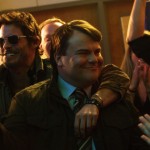 THE D TRAIN / U.S.A. (Directors and screenwriters: Jarrad Paul, Andrew Mogel) — With his 20th reunion looming, Dan can’t shake his high school insecurities. In a misguided mission to prove he’s changed, Dan rekindles a friendship with the popular guy from his class and is left scrambling to protect more than just his reputation when a wild night takes an unexpected turn. Cast: Jack Black, James Marsden, Kathryn Hahn, Jeffrey Tambor, Mike White, Kyle Bornheimer.
THE D TRAIN / U.S.A. (Directors and screenwriters: Jarrad Paul, Andrew Mogel) — With his 20th reunion looming, Dan can’t shake his high school insecurities. In a misguided mission to prove he’s changed, Dan rekindles a friendship with the popular guy from his class and is left scrambling to protect more than just his reputation when a wild night takes an unexpected turn. Cast: Jack Black, James Marsden, Kathryn Hahn, Jeffrey Tambor, Mike White, Kyle Bornheimer.
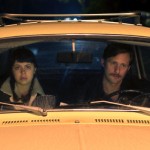 THE DIARY OF A TEENAGE GIRL / U.S.A. (Director and screenwriter: Marielle Heller) — Minnie Goetze is a 15-year-old aspiring comic-book artist, coming of age in the haze of the 1970s in San Francisco. Insatiably curious about the world around her, Minnie is a pretty typical teenage girl. Oh, except that she’s sleeping with her mother’s boyfriend. Cast: Bel Powley, Alexander Skarsgård, Christopher Meloni, Kristen Wiig.
THE DIARY OF A TEENAGE GIRL / U.S.A. (Director and screenwriter: Marielle Heller) — Minnie Goetze is a 15-year-old aspiring comic-book artist, coming of age in the haze of the 1970s in San Francisco. Insatiably curious about the world around her, Minnie is a pretty typical teenage girl. Oh, except that she’s sleeping with her mother’s boyfriend. Cast: Bel Powley, Alexander Skarsgård, Christopher Meloni, Kristen Wiig.
DOPE/ U.S.A. (Director and screenwriter: Rick Famuyiwa) — Malcolm is carefully surviving life in a tough neighborhood in Los Angeles while juggling college applications, academic interviews, and the SAT. A chance invitation to an underground party leads him into an adventure that could allow him to go from being a geek, to being dope, to ultimately being himself. Cast: Shameik Moore, Tony Revolori, Kiersey Clemons, Blake Anderson, Zoë Kravitz, A$AP Rocky.
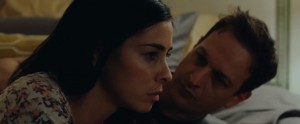 I SMILE BACK / U.S.A. (Director: Adam Salky, Screenwriters: Amy Koppelman, Paige Dylan) —Laney Brooks does bad things. Married with kids, she takes the drugs she wants, sleeps with the men she wants, disappears when she wants. Now, with the destruction of her family looming, and temptation everywhere, Laney makes one last desperate attempt at redemption. Cast: Sarah Silverman, Josh Charles, Thomas Sadoski, Mia Barron, Terry Kinney, Chris Sarandon.
I SMILE BACK / U.S.A. (Director: Adam Salky, Screenwriters: Amy Koppelman, Paige Dylan) —Laney Brooks does bad things. Married with kids, she takes the drugs she wants, sleeps with the men she wants, disappears when she wants. Now, with the destruction of her family looming, and temptation everywhere, Laney makes one last desperate attempt at redemption. Cast: Sarah Silverman, Josh Charles, Thomas Sadoski, Mia Barron, Terry Kinney, Chris Sarandon.
Me and Earl and the Dying Girl / U.S.A. (Director: Alfonso Gomez-Rejon, Screenwriter: Jesse Andrews) is getting some great reviews, judging by the buzz currently coming out the festival crowd. Greg is coasting through senior year of high school as anonymously as possible, avoiding social interactions like the plague while secretly making spirited, bizarre films with Earl, his only friend. But both his anonymity and friendship threaten to unravel when his mother forces him to befriend a classmate with leukemia. Cast: Thomas Mann, RJ Cyler, Olivia Cooke, Nick Offerman, Connie Britton, Molly Shannon. WINTER : Audience Award: Dramatic
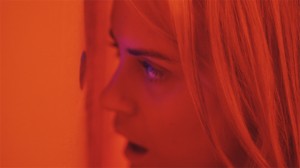
THE OVERNIGHT / U.S.A. (Director and screenwriter: Patrick Brice) — In an attempt to acclimate to Los Angeles, a young couple spends an increasingly bizarre evening with the parents of their son’s new friend. Cast: Adam Scott, Taylor Schilling, Jason Schwartzman, Judith Godrèche.
PEOPLE, PLACES, THINGS/ U.S.A. (Director and screenwriter: James C. Strouse) — Will Henry is a newly single graphic novelist balancing being a parent to his young twin daughters and teaching a classroom full of college students, all the while trying to navigate the rich complexities of new love and letting go of the woman who left him. Cast: Jemaine Clement, Regina Hall, Stephanie Allynne, Jessica Williams, Gia Gadsby, Aundrea Gadsby.
RESULTS / U.S.A. (Director and screenwriter: Andrew Bujalski) — Two mismatched personal trainers’ lives are upended by the actions of a new, wealthy client. Cast: Guy Pearce, Cobie Smulders, Kevin Corrigan, Giovanni Ribisi, Anthony Michael Hall, Brooklyn Decker.

SONGS MY BROTHERS TAUGHT ME / U.S.A. (Director and screenwriter: Chloé Zhao) — This complex portrait of modern-day life on the Pine Ridge Indian Reservation explores the bond between a brother and his younger sister, who find themselves on separate paths to rediscovering the meaning of home. Cast: John Reddy, Jashaun St. John, Irene Bedard, Taysha Fuller, Travis Lone Hill, Eléonore Hendricks.
THE STANFORD PRISON EXPERIMENT / U.S.A. (Director: Kyle Patrick Alvarez, Screenwriter: Tim Talbott) — Based on the actual events that took place in 1971, when Stanford professor Dr. Philip Zimbardo created what became one of the most shocking and famous social experiments of all time. Cast: Billy Crudup, Ezra Miller, Michael Angarano, Tye Sheridan, Johnny Simmons, Olivia Thirlby. BEST SCRIPT
STOCKHOLM, PENNSYLVANIA/ U.S.A. (Director and screenwriter: Nikole Beckwith) — A young woman is returned home to her biological parents after living with her abductor for 17 years. Cast: Saoirse Ronan, Cynthia Nixon, Jason Isaacs, David Warshofsky.
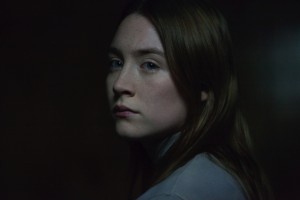
UNEXPECTED / U.S.A. (Director: Kris Swanberg, Screenwriters: Kris Swanberg, Megan Mercier) — When Samantha Abbott begins her final semester teaching science at a Chicago high school, she faces some unexpected news: she’s pregnant. Soon after, Samantha learns that one of her favorite students, Jasmine, has landed in a similar situation. Unexpected follows the two women as they embark on an unlikely friendship. Cast: Cobie Smulders, Anders Holm, Gail Bean, Elizabeth McGovern.
THE WITCH/ U.S.A., Canada (Director and screenwriter: Robert Eggers) — Another buzzworthy title at this year’s festival is set in New England in the 1630s: William and Katherine lead a devout Christian life with five children, homesteading on the edge of an impassable wilderness. When their newborn son vanishes and crops fail, the family turns on one another. Beyond their worst fears, a supernatural evil lurks in the nearby wood. Cast: Anya Taylor Joy, Ralph Ineson, Kate Dickie, Harvey Scrimshaw, Lucas Dawson, Ellie Grainger.
Z FOR ZACHARIAH / U.S.A. (Director: Craig Zobel, Screenwriter: Nissar Modi) — In a post-apocalyptic world, a young woman who believes she is the last human on Earth meets a dying scientist searching for survivors. Their relationship becomes tenuous when another survivor appears. As the two men compete for the woman’s affection, their primal urges begin to reveal their true nature. Cast: Chiwetel Ejiofor, Margot Robbie, Chris Pine.
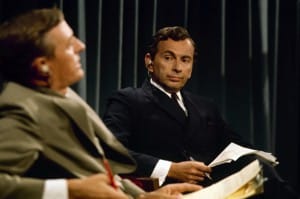 U .S. D O C U M E N T A R Y C O M P E T I T I O N
U .S. D O C U M E N T A R Y C O M P E T I T I O N
Sixteen world-premiere American documentaries that illuminate the ideas, people, and events that shape the present day.
3½ MINUTES / U.S.A. (Director: Marc Silver) — On November 23, 2012, unarmed 17-year-old Jordan Russell Davis was shot at a Jacksonville gas station by Michael David Dunn. 3½ MINUTES explores the aftermath of Jordan’s tragic death, the latent and often unseen effects of racism, and the contradictions of the American criminal justice system.
BEING EVIL / U.S.A. (Director: Daniel Junge) —Millions know the man, but few know his story. Academy Award-winner Daniel Junge (Saving Face) and actor/producer Johnny Knoxville reveal an unprecedented and candid look at American daredevil and icon Robert “Evel” Knievel. Being Evel is a surprising tale about a childhood hero…flaws and all.
BEST OF ENEMIES U.S.A. (Directors: Morgan Neville, Robert Gordon) — Best of Enemies is a behind-the-scenes account of the explosive 1968 televised debates between the liberal Gore Vidal and the conservative William F. Buckley Jr., and their rancorous disagreements about politics, God, and sex.
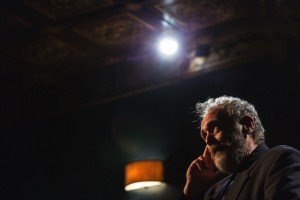 CALL ME LUCKY / U.S.A. (Director: Bobcat Goldthwait) — Barry Crimmins was a volatile but brilliant bar comic who became an honored peace activist and influential political satirist. Famous comedians and others build a picture of a man who underwent an incredible transformation.
CALL ME LUCKY / U.S.A. (Director: Bobcat Goldthwait) — Barry Crimmins was a volatile but brilliant bar comic who became an honored peace activist and influential political satirist. Famous comedians and others build a picture of a man who underwent an incredible transformation.
CARTEL LAND/ U.S.A., Mexico (Director: Matthew Heineman) — In this classic Western set in the 21st century, vigilantes on both sides of the border fight the vicious Mexican drug cartels. With unprecedented access, this character-driven film provokes deep questions about lawlessness, the breakdown of order, and whether citizens should fight violence with violence. Directing Award: Documentary
 CITY OF GOLD/ U.S.A. (Director: Laura Gabbert) — Pulitzer Prize-winning critic Jonathan Gold casts his light upon a vibrant and growing cultural movement in which he plays the dual roles of high-low priest and culinary geographer of his beloved Los Angeles.
CITY OF GOLD/ U.S.A. (Director: Laura Gabbert) — Pulitzer Prize-winning critic Jonathan Gold casts his light upon a vibrant and growing cultural movement in which he plays the dual roles of high-low priest and culinary geographer of his beloved Los Angeles.
FINDERS KEEPERS / U.S.A. (Directors: Bryan Carberry, Clay Tweel) — Recovering addict and amputee John Wood finds himself in a stranger-than-fiction battle to reclaim his mummified leg from Southern entrepreneur Shannon Whisnant, who found it in a grill he bought at an auction and believes it to therefore be his rightful property.
HOT GIRLS WANTED / U.S.A. (Directors: Jill Bauer, Ronna Gradus) — Hot Girls Wanted is a first-ever look at the realities inside the world of the amateur porn industry and the steady stream of 18- and 19-year-old girls entering into it.
 HOW TO DANCE IN OHIO / U.S.A. (Director: Alexandra Shiva) — In Columbus, Ohio, a group of teenagers and young adults on the autism spectrum prepare for an iconic American rite of passage — a spring formal. They spend 12 weeks practicing their social skills in preparation for the dance at a local nightclub.
HOW TO DANCE IN OHIO / U.S.A. (Director: Alexandra Shiva) — In Columbus, Ohio, a group of teenagers and young adults on the autism spectrum prepare for an iconic American rite of passage — a spring formal. They spend 12 weeks practicing their social skills in preparation for the dance at a local nightclub.
LARRY KRAMER IN LOVE AND ANGER / U.S.A. (Director: Jean Carlomusto) — Author, activist, and playwright Larry Kramer is one of the most important and controversial figures in contemporary gay America, a political firebrand who gave voice to the outrage and grief that inspired gay men and lesbians to fight for their lives. At 78, this complicated man still commands our attention.
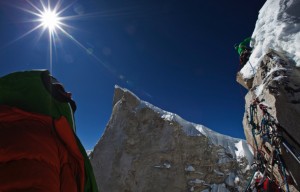 MERU / U.S.A. (Directors: Jimmy Chin, E. Chai Vasarhelyi) — Three elite mountain climbers sacrifice everything but their friendship as they struggle through heartbreaking loss and nature’s harshest elements to attempt the never-before-completed Shark’s Fin on Mount Meru, the most coveted first ascent in the dangerous game of Himalayan big wall climbing. Audience Award: Dramatic
MERU / U.S.A. (Directors: Jimmy Chin, E. Chai Vasarhelyi) — Three elite mountain climbers sacrifice everything but their friendship as they struggle through heartbreaking loss and nature’s harshest elements to attempt the never-before-completed Shark’s Fin on Mount Meru, the most coveted first ascent in the dangerous game of Himalayan big wall climbing. Audience Award: Dramatic
RACING EXTINCTION / U.S.A. (Director: Louie Psihoyos) — Academy Award-winner Louie Psihoyos (The Cove) assembles a unique team to show the world never-before-seen images that expose issues surrounding endangered species and mass extinction. Whether infiltrating notorious black markets or exploring humans’ effect on the environment, Racing Extinction will change the way you see the world.
(T)ERROR/ U.S.A. (Directors: Lyric R. Cabral, David Felix Sutcliffe) — (T)ERROR is the first film to document on camera a covert counterterrorism sting as it unfolds. Through the perspective of *******, a 63-year-old Black revolutionary turned FBI informant, viewers are given an unprecedented glimpse of the government’s counterterrorism tactics, and the murky justifications behind them. BEST BREAKOUT FILM
WELCOME TO LEITH / U.S.A. (Directors: Michael Beach Nichols, Christopher K. Walker) — A white supremacist attempts to take over a small town in North Dakota.
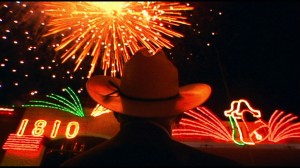 WESTERN / U.S.A., Mexico (Directors: Bill Ross, Turner Ross) — For generations, all that distinguished Eagle Pass, Texas, from Piedras Negras, Mexico, was the Rio Grande. But when darkness descends upon these harmonious border towns, a cowboy and lawman face a new reality that threatens their way of life. Western portrays timeless American figures in the grip of unforgiving change.
WESTERN / U.S.A., Mexico (Directors: Bill Ross, Turner Ross) — For generations, all that distinguished Eagle Pass, Texas, from Piedras Negras, Mexico, was the Rio Grande. But when darkness descends upon these harmonious border towns, a cowboy and lawman face a new reality that threatens their way of life. Western portrays timeless American figures in the grip of unforgiving change.
THE WOLFPACK / U.S.A. (Director: Crystal Moselle) — Six bright teenage brothers have spent their entire lives locked away from society in a Manhattan housing project. All they know of the outside is gleaned from the movies they watch obsessively (and recreate meticulously). Yet as adolescence looms, they dream of escape, ever more urgently, into the beckoning world. Grand Jury Prize: Documentary
W O R L D C I N E M A D R A M A T I C C O M P E T I T I O N
Twelve films from emerging filmmaking talents around the world offer fresh perspectives and inventive styles.
CLORO (Chlorine) / Italy (Director: Lamberto Sanfelice, Screenwriters: Lamberto Sanfelice, Elisa Amoruso) — Jenny, 17, dreams of becoming a synchronized swimmer. Family events turn her life upside down and she is forced to move to a remote area to look after her ill father and younger brother. It won’t be long before Jenny starts pursuing her dreams again. Cast: Sara Serraiocco, Ivan Franek, Giorgio Colangeli, Anatol Sassi, Piera Degli Esposti, Andrea Vergoni. World Premiere
 CHORUS/ Canada (Director and screenwriter: François Delisle) — A separated couple meet again after 10 years when the body of their missing son is found. Amid the guilt of losing a loved one, they hesitantly move toward affirmation of life, acceptance of death, and even the possibility of reconciliation. Cast: Sébastien Ricard, Fanny Mallette, Pierre Curzi, Genevieve Bujold. World Premiere
CHORUS/ Canada (Director and screenwriter: François Delisle) — A separated couple meet again after 10 years when the body of their missing son is found. Amid the guilt of losing a loved one, they hesitantly move toward affirmation of life, acceptance of death, and even the possibility of reconciliation. Cast: Sébastien Ricard, Fanny Mallette, Pierre Curzi, Genevieve Bujold. World Premiere
GLASSLAND/ Ireland (Director and screenwriter: Gerard Barrett) — In a desperate attempt to reunite his broken family, a young taxi driver becomes entangled in the criminal underworld. Cast: Jack Reynor, Toni Collette, Will Poulter, Michael Smiley. International Premiere. World Cinema Special Jury Prize for Acting:Jack Reynor
HOMESICK/ Norway (Director: Anne Sewitsky, Screenwriters: Ragnhild Tronvoll, Anne Sewitsky) — When Charlotte, 27, meets her brother Henrik, 35, for the first time, two people who don’t know what a normal family is begin an encounter without boundaries. How does sibling love manifest itself if you have never experienced it before? Cast: Ine Marie Wilmann, Simon J. Berger, Anneke von der Lippe, Silje Storstein, Oddgeir Thune, Kari Onstad. World Premiere
 IVY/ Turkey (Director and screenwriter: Tolga Karaçelik) — Sarmasik is sailing to Egypt when the ship’s owner goes bankrupt. The crew learns there is a lien on the ship, and key crew members must stay on board. Ivy is the story of these six men trapped on the ship for days. Cast: Nadir Sarıbacak, Özgür Emre Yıldırım, Hakan Karsak, Kadir Çermik, Osman Alkaş, Seyithan Özdemiroğlu. World Premiere
IVY/ Turkey (Director and screenwriter: Tolga Karaçelik) — Sarmasik is sailing to Egypt when the ship’s owner goes bankrupt. The crew learns there is a lien on the ship, and key crew members must stay on board. Ivy is the story of these six men trapped on the ship for days. Cast: Nadir Sarıbacak, Özgür Emre Yıldırım, Hakan Karsak, Kadir Çermik, Osman Alkaş, Seyithan Özdemiroğlu. World Premiere
PARTISAN/ Australia (Director: Ariel Kleiman, Screenwriters: Ariel Kleiman, Sarah Cyngler) — Alexander is like any other kid: playful, curious and naive. He is also a trained assassin. Raised in a hidden paradise, Alexander has grown up seeing the world filtered through his father, Gregori. As Alexander begins to think for himself, creeping fears take shape, and Gregori’s idyllic world unravels. Cast: Vincent Cassel, Jeremy Chabriel, Florence Mezzara. World Dramatic Award for Cinematography.
PRINCESS / Israel (Director and screenwriter: Tali Shalom Ezer) — While her mother is away from home, 12-year-old Adar’s role-playing games with her stepfather move into dangerous territory. Seeking an escape, Adar finds Alan, an ethereal boy that accompanies her on a dark journey between reality and fantasy. Cast: Keren Mor, Shira Haas, Ori Pfeffer, Adar Zohar Hanetz. International Premiere
THE SECOND MOTHER / Brazil (Director and screenwriter: Anna Muylaert) — Having left her daughter, Jessica, to be raised by relatives in the north of Brazil, Val works as a loving nanny in São Paulo. When Jessica arrives for a visit 13 years later, she confronts her mother’s slave-like attitude and everyone in the house is affected by her unexpected behavior. Cast: Regina Casé, Michel Joelsas, Camila Márdila, Karine Teles, Lourenço Mutarelli. World Premiere
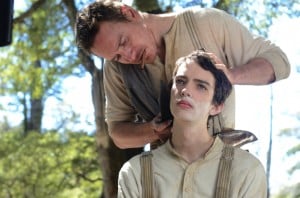 SLOW WEST / New Zealand (Director and screenwriter: John Maclean) — Set at the end of the nineteenth century, 16-year-old Jay Cavendish journeys across the American frontier in search of the woman he loves. He is joined by Silas, a mysterious traveler, and hotly pursued by an outlaw along the way. Cast: Kodi Smit-McPhee, Michael Fassbender, Ben Mendelsohn, Caren Pistorius, Rory McCann. World Premiere. World Cinema Jury Prize: Dramatic WINNER
SLOW WEST / New Zealand (Director and screenwriter: John Maclean) — Set at the end of the nineteenth century, 16-year-old Jay Cavendish journeys across the American frontier in search of the woman he loves. He is joined by Silas, a mysterious traveler, and hotly pursued by an outlaw along the way. Cast: Kodi Smit-McPhee, Michael Fassbender, Ben Mendelsohn, Caren Pistorius, Rory McCann. World Premiere. World Cinema Jury Prize: Dramatic WINNER
STRANGER LAND / Australia, Ireland (Director: Kim Farrant, Screenwriters: Fiona Seres, Michael Kinirons) — When Catherine and Matthew Parker’s two teenage kids disappear into the remote Australian desert, the couple’s relationship is pushed to the brink as they confront the mystery of their children’s fate. Cast: Nicole Kidman, Joseph Fiennes, Hugo Weaving, Lisa Flanagan, Meyne Wyatt, Maddison Brown. World Premiere
THE SUMMER OF SANGAILE/ Lithuania, France, Holland (Director and screenwriter: Alanté Kavaïté) — Seventeen-year-old Sangaile is fascinated by stunt planes. She meets a girl her age at the summer aeronautical show, nearby her parents’ lakeside villa. Sangaile allows Auste to discover her most intimate secret and in the process finds in her teenage love, the only person that truly encourages her to fly. Cast: Julija Steponaitytė, Aistė Diržiūtė. World Premiere. DAY ONE FILM. World Cinema Directing Award: Dramatic – Alanté Kavaïté
UMRIKA / India (Director and screenwriter: Prashant Nair) — When a young village boy discovers that his brother, long believed to be in America, has actually gone missing, he begins to invent letters on his behalf to save their mother from heartbreak, all the while searching for him. Cast: Suraj Sharma, Tony Revolori, Smita Tambe, Adil Hussain, Rajesh Tailang, Prateik Babbar. World Premiere. World Cinema Audience Award: Dramatic
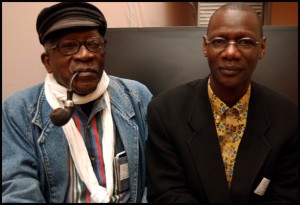 W O R L D C I N E M A D O C U M E N T A R Y C O M P E T I T I O N
W O R L D C I N E M A D O C U M E N T A R Y C O M P E T I T I O N
Twelve documentaries by some of the most courageous and extraordinary international filmmakers working today.
THE AMINA PROFILE / Canada (Director: Sophie Deraspe) — During the Arab revolution, a love story between two women — a Canadian and a Syrian American — turns into an international sociopolitical thriller spotlighting media excesses and the thin line between truth and falsehood on the Internet. World Premiere
CENSORED VOICES / Israel, Germany (Director: Mor Loushy) — One week after the 1967 Six-Day War, renowned author Amos Oz and editor Avraham Shapira recorded intimate conversations with soldiers returning from the battlefield. The Israeli army censored the recordings, allowing only a fragment of the conversations to be published. Censored Voices reveals these recordings for the first time. World Premiere
 THE CHINESE MAYOR/ China (Director: Hao Zhou) — Mayor Geng Yanbo is determined to transform the coal-mining center of Datong, in China’s Shanxi province, into a tourism haven showcasing clean energy. In order to achieve that, however, he has to relocate 500,000 residences to make way for the restoration of the ancient city. World Premiere
THE CHINESE MAYOR/ China (Director: Hao Zhou) — Mayor Geng Yanbo is determined to transform the coal-mining center of Datong, in China’s Shanxi province, into a tourism haven showcasing clean energy. In order to achieve that, however, he has to relocate 500,000 residences to make way for the restoration of the ancient city. World Premiere
Chuck Norris vs Communism / United Kingdom, Romania, Germany (Director: Ilinca Calugareanu) — In 1980s Romania, thousands of Western films smashed through the Iron Curtain, opening a window to the free world for those who dared to look. A black market VHS racketeer and courageous female translator brought the magic of film to the masses and sowed the seeds of a revolution. World Premiere
 DARK HORSE / United Kingdom (Director: Louise Osmond) — Dark Horse is the inspirational true story of a group of friends from a workingman’s club who decide to take on the elite “sport of kings” and breed themselves a racehorse. Showing how animals can unite the community in a common interest and cause, Osmond’s film has been well-received at the festival’s first showings. World Premiere
DARK HORSE / United Kingdom (Director: Louise Osmond) — Dark Horse is the inspirational true story of a group of friends from a workingman’s club who decide to take on the elite “sport of kings” and breed themselves a racehorse. Showing how animals can unite the community in a common interest and cause, Osmond’s film has been well-received at the festival’s first showings. World Premiere
DREAMCATCHER/ United Kingdom (Director: Kim Longinotto) — Dreamcatcher takes us into a hidden world seen through the eyes of one of its survivors, Brenda Myers-Powell. A former teenage prostitute, Brenda defied the odds to become a powerful advocate for change in her community. With warmth and humor, Brenda gives hope to those who have none. World Premiere – World Cinema Directing Award: Documentary – SEE OUR ROTTERDAM REVIEW
HOW TO CHANGE THE WORLD/ United Kingdom, Canada (Director: Jerry Rothwell) — In 1971, a group of friends sails into a nuclear test zone, and their protest captures the world’s imagination. Using rare, archival footage that brings their extraordinary world to life, How to Change the World is the story of the pioneers who founded Greenpeace and defined the modern green movement. World Premiere. DAY ONE FILM

LISTEN TO ME, MARLON / United Kingdom (Director and screenwriter: Stevan Riley, Co-writer: Peter Ettedgui) — With exclusive access to previously unheard audio archives, this is the definitive Marlon Brando cinema documentary. Charting his exceptional career and extraordinary life away from the stage and screen, the film fully explores the complexities of the man by telling the story uniquely in Marlon’s own voice. World Premiere
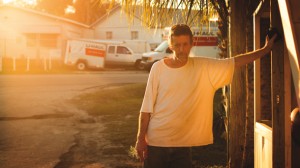 PERVERT PARK/ Sweden, Denmark (Directors: Frida Barkfors, Lasse Barkfors) — Pervert Park follows the everyday lives of sex offenders in a Florida trailer park as they struggle to reintegrate into society, and try to understand who they are and how to break the cycle of sex crimes being committed. International Premiere
PERVERT PARK/ Sweden, Denmark (Directors: Frida Barkfors, Lasse Barkfors) — Pervert Park follows the everyday lives of sex offenders in a Florida trailer park as they struggle to reintegrate into society, and try to understand who they are and how to break the cycle of sex crimes being committed. International Premiere
THE RUSSIAN WOODPECKER / United Kingdom (Director: Chad Gracia) — A Ukrainian victim of the Chernobyl nuclear disaster discovers a dark secret and must decide whether to risk his life by revealing it, amid growing clouds of revolution and war. World Premiere. World Cinema Jury Prize: Documentary
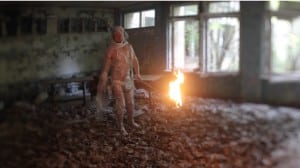 SEMBENE! / U.S.A., Senegal (Directors: Samba Gadjigo, Jason Silverman) — In 1952, Ousmane Sembene, a Senegalese dockworker and fifth-grade dropout, began dreaming an impossible dream: to become the storyteller for a new Africa. This true story celebrates how the “father of African cinema,” against enormous odds, fought a monumental, 50-year-long battle to give Africans a voice. World Premiere
SEMBENE! / U.S.A., Senegal (Directors: Samba Gadjigo, Jason Silverman) — In 1952, Ousmane Sembene, a Senegalese dockworker and fifth-grade dropout, began dreaming an impossible dream: to become the storyteller for a new Africa. This true story celebrates how the “father of African cinema,” against enormous odds, fought a monumental, 50-year-long battle to give Africans a voice. World Premiere
THE VISIT/ Denmark, Austria, Ireland, Finland, Norway (Director: Michael Madsen) — “This film documents an event that has never taken place…” With unprecedented access to the United Nations’ Office for Outer Space Affairs, leading space scientists and space agencies, The Visit explores humans’ first encounter with alien intelligent life and thereby humanity itself. “Our scenario begins with the arrival. Your arrival.” World Premiere
N E X T
Pure, bold works distinguished by an innovative, forward-thinking approach to storytelling populate this program. Digital technology paired with unfettered creativity promises that the films in this section will shape a “greater” next wave in American cinema. Presented by Adobe.
BOB AND THE TREES/ U.S.A., France (Director: Diego Ongaro, Screenwriters: Diego Ongaro, Courtney Maum, Sasha Statman-Weil) — Bob, a 50-year-old logger in rural Massachusetts with a soft spot for golf and gangsta rap, is struggling to make ends meet in a changed economy. When his beloved cow is wounded and a job goes awry, Bob begins to heed the instincts of his ever-darkening self. Cast: Bob Tarasuk, Matt Gallagher, Polly MacIntyre, Winthrop Barrett, Nathaniel Gregory. World Premiere

CHRISTMAS, AGAIN / U.S.A. (Director and screenwriter: Charles Poekel) — A heartbroken Christmas tree salesman returns to New York, hoping to put the past year behind him. He spends the season living in a trailer and working the night shift, until a mysterious woman and some colorful customers rescue him from self-destruction. Cast: Kentucker Audley, Hannah Gross, Jason Shelton, Oona Roche. North American Premiere
CRONIES/ U.S.A. (Director and screenwriter: Michael Larnell) — Twenty-two-year-old Louis doesn’t know whether his childhood friendship with Jack will last beyond today. Cast: George Sample III, Zurich Buckner, Brian Kowalski. World Premiere
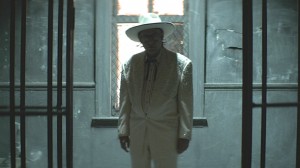 ENTERTAINMENT / U.S.A. (Director: Rick Alverson, Screenwriters: Rick Alverson, Gregg Turkington, Tim Heidecker) — En route to meeting with his estranged daughter, in an attempt to revive his dwindling career, a broken, aging comedian plays a string of dead-end shows in the Mojave Desert. Cast: Gregg Turkington, John C. Reilly, Tye Sheridan, Michael Cera, Amy Seimetz, Lotte Verbeek. World Premiere
ENTERTAINMENT / U.S.A. (Director: Rick Alverson, Screenwriters: Rick Alverson, Gregg Turkington, Tim Heidecker) — En route to meeting with his estranged daughter, in an attempt to revive his dwindling career, a broken, aging comedian plays a string of dead-end shows in the Mojave Desert. Cast: Gregg Turkington, John C. Reilly, Tye Sheridan, Michael Cera, Amy Seimetz, Lotte Verbeek. World Premiere
H. / U.S.A., Argentina (Directors and screenwriters: Rania Attieh, Daniel Garcia) — Two women, each named Helen, find their lives spinning out of control after a meteor allegedly explodes over their city of Troy, New York. Cast: Robin Bartlett, Rebecca Dayan, Will Janowitz, Julian Gamble, Roger Robinson. World Premiere
JAMES WRIGHT/ U.S.A. (Director and screenwriter: Josh Mond) — A young New Yorker struggles to take control of his reckless, self-destructive behavior in the face of momentous family challenges. Cast: Chris Abbott, Cynthia Nixon, Scott Mescudi, Makenzie Leigh, David Call. World Premiere. BEST OF NEXT AWARD
NASTY BABY / U.S.A. (Director and screenwriter: Sebastian Silva) — A gay couple try to have a baby with the help of their best friend, Polly. The trio navigates the idea of creating life while confronted by unexpected harassment from a neighborhood man called The Bishop. As their clashes grow increasingly aggressive, odds are someone is getting hurt. Cast: Sebastian Silva, Kristin Wiig, Tunde Adebimpe, Alia Shawkat, Mark Margolis, Reg E. Cathey. World Premiere
THE STRONGEST MAN / U.S.A. (Director and screenwriter: Kenny Riches) — An anxiety-ridden Cuban man who fancies himself the strongest man in the world attempts to recover his most prized possession, a stolen bicycle. On his quest, he finds and loses much more. Cast: Robert Lorie, Paul Chamberlain, Ashly Burch, Patrick Fugit, Lisa Banes. World Premiere
TAKE ME TO THE RIVER / U.S.A. (Director and screenwriter: Matt Sobel) — A naive California teen plans to remain above the fray at his Nebraskan family reunion, but a strange encounter places him at the center of a long-buried family secret. Cast: Logan Miller, Robin Weigert, Josh Hamilton, Richard Schiff, Ursula Parker, Azura Skye. World Premiere
 TANGERINE / U.S.A. (Director: Sean Baker, Screenwriters: Sean Baker, Chris Bergoch) — A working girl tears through Tinseltown on Christmas Eve searching for the pimp who broke her heart. Cast: Kitana Kiki Rodriguez, Mya Taylor, Karren Karagulian, Mickey O’Hagan, Alla Tumanyan, James Ransone. World Premiere –
TANGERINE / U.S.A. (Director: Sean Baker, Screenwriters: Sean Baker, Chris Bergoch) — A working girl tears through Tinseltown on Christmas Eve searching for the pimp who broke her heart. Cast: Kitana Kiki Rodriguez, Mya Taylor, Karren Karagulian, Mickey O’Hagan, Alla Tumanyan, James Ransone. World Premiere –
SUNDANCE RUNS FROM 22 JANUARY UNTIL 1 FEBRUARY 2015 IN PARK CITY, UTAH, AMERICA

